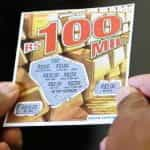New Joint Venture Means Big Wins for Brazil
The Investment Partnership Program of Brazil recently announced a new joint venture between International Game Technology and Scientific Games, allowing both the means to operate the instant lottery. Once finalized, this move will end nearly six decades of monopoly controlling Brazil’s lottery.
The Lottery in Brazil: An Overview
Brazil is considered by many to be the lottery capital of Latin America. From lotteries like Lotofácil and Dupla Sena, which offer players favorable winning odds, to giant prizes like Quina, fans of the lottery are wise to try their odds in Brazil.

The lottery is very popular in Brazil, and it is in anticipated that this new merger should generate promising new income for the leader of lotteries in Latin America. ©povertyactionlab.org
The Mega Sena: An International Sensation
The Brazilian lottery first made an international splash with the introduction of the Mega Sena lottery in 1996. Today, this lottery is one of the biggest in the entire world, and the biggest in South America.
The Mega Sena is a combination of 6 random numbers between 1 and 60. Players participate by guessing 6 numbers within this range, and the lottery happens twice a week(Wednesdays and Saturdays at 8pm local time), so the chance to participate comes often!
The final day of the year (December 31) sees an extra-special Mega Sena, called the Mega Da Virada Superdraw. This lottery offers especially big jackpots: in 2017, the Superdraw jackpot was as high as R$306 million (US$76.9 million).
With the advent of online gaming, the Mega Sena became available for not just those living in Brazil, but for international players from around the world to participate through Lottoland.
This lottery draws so much attention in particular because it awards players high jackpots on a fairly reliable basis, giving players 46% of the money earned through ticket sales.
As of this year, Mega Sena’s highest awarded jackpot was split between four players, who divided the mammoth R$263.2 million between them in 2014. The next year, a single player earned the biggest jackpot for an individual, clocking in at a whopping R$205 million.
The Mega Sena occupies a significant role in Brazil’s economy: 56% of the total revenue from the Mega Sena earned from tickets goes to funding national social programs.
Brazil Warming Towards Gaming Overall

This merger ends the decades-long monopoly on the state lottery previously held by CAIXA, a national bank in Brazil. ©youtube.com
In the last few years, Brazil has made steps towards regulating a gaming industry in its borders. At the close of 2018, the senate in Brazil passed a bill under the blanket of the lottery — which had already been established in the country — which allowed for greater use of sports betting both online and in person.
Overall, online gambling in Brazil falls under the jurisdiction of Loterias Caixa, which also is responsible for the Quina lottery.
It is likely that the government of Brazil has been friendlier to these options due to the demonstrated tax revenue such as lotteries could generate for public services, such as infrastructure and security.
2018 also saw multiple visits to Brazil by Las Vegas Sands titan Sheldon Adelson, who has gone on the record as urging the country to sanction casino operations.
After some stagnation on the front of gaming regulation and expansion in 2018, last year’s bill and this new merger demonstrate a shifting current in the Latin American nation.
The Merger: A Long Time Coming
As early as 2018, government officials reassuring frustrated potential gaming operators and investors mentioned potential plans to transition the Lotex Lottery from public to private. At the time, these comments by Economy, Energy, and Lottery Department Secretary Alexandre Manoel were seen as conciliatory, but today, it is clear Manoel was referencing these plans as early as 2018, made reality with the merger announcement October 22.
Prior to this merger, Lotex was run by the national bank, Caixa Econômica Federal(CAIXA).
Who Bought the Lottery?
The particulars of the merger see Brazil’s government turning over control of the lottery to two companies, International Game Technology and Scientific Games.
International Game Technology (IGT) is a company from the U.S., based out of London, UK. The company originated as IGT in 1975 and was acquired by Gtech in 2015, which moved to maintain the original name of the company, first founded by William Redd. Today, the CEO of IGT is Marco Sala.
Similarly, Scientific Games is also based in Nevada, though located in Las Vegas. Scientific Games has a history spanning much of the 20th century. In 1974, Scientific Games was “The award of the Brazilian Lotex concession represents an important step towards the privatization [sic] of lottery instant games in Brazil, the world’s eighth-largest economy.”
“[This] represents the break of a 58-year monopoly over the national lottery industry. It represents openness to competition and a paradigm shift for the company.”– Alexandre Manoel, Economy, Energy, and Lottery Department Secretary, Brazil.
No Other Takers
While this deal represents major wins both for Brazil and the two US-based companies, Scientific Games and IGT were the only companies to put their hats in the ring.
Brazil, it seems, had offered up its lottery to private investors generally, and these companies were the only two that bit.
Anticipating the possibility of other applicants, Brazil left the option open for losing companies to appeal the decision until December 2nd, making the official decision on December 23rd. On this timeline, the final contract will be signed in the middle of April, 2020.
For this reason, the deal has not yet been made official, but it is likely that the process will be expedited rather than forcing the companies to wait until the close of this year.



